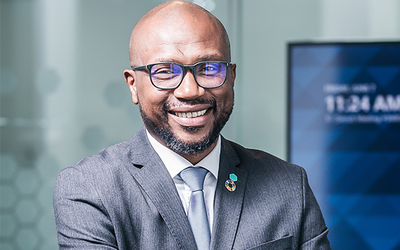More on Interview



MICHAEL FRANK, country director of World Vision International Nepal (WVIN) has been in Nepal for more than two years. Michael, who is also SC member of Association of International Non-governmental Organization, has travelled Nepal widely. Michael spoke to New Spotlight on various issues regarding the role of WVIN in Nepal’s development process. Excerpts:
How do you evaluate the activities launched by World Vision International Nepal in the last one decade?
Over the past ten years there have been a number of formal and informal methods to judge progress towards project development objectives. Each of our program areas (Area Development Programs or ADP) have an annual plan of activities which is based on our long-term strategic objectives. Regular reports are submitted by the ADP management on progress towards achieving the annual plan. A formal evaluation is conducted once a year which is led by Social Welfare Council and includes involvement of concerned line ministries and other stakeholders. There are also sector specific evaluations that are organized by donor agencies.
As there are many NGOs and INGOs working in empowering women and children, what are the focused areas (working districts) of World Vision International Nepal?
World Vision consults and coordinates closely with other INGOs that focus on mothers and children to ensure there is no overlap. In selecting geographic locations for project activities World Vision does an intensive assessment with the involvement of the local governments (District and VDC) and communities in order to select the most needy areas and the areas that are not currently being reached by other INGOs.
What is your observation in Nepal regarding the status of children?
Much progress has been achieved over the past ten years in improving the health of mothers and children. The government deserves a lot of credit. However, there is still much to be done to build on the achievements. We cannot rest until every mother and child enjoy the benefits of good health and with ready access to all their heath needs.
As Nepal has made a tremendous progress in the child health and the country is likely to meet Millennium Development Goals, how do you see the role of INGOs?
The INGO community can only play a supporting role to the government and the community. Sustained achievement of the Millennium Development Goals (MDG) can only happen through government programs and policy. INGOs can effectively support the government programs especially in remote areas that suffer from lack of adequate infrastructure and access to services but long term sustainability of MDG will only achieved by concerted efforts of the community and government.
What is observation about Nepal?
Before arriving in Nepal two years ago, I had the typical perception held by most foreigners - Nepal is a beautiful , Shangra La - esque country with wondrous mountain landscape and very friendly and hospitable people. This is definitely true but Nepal is much more complex when one considers the history, the ethnic diversity, and the political dynamics. I have high hopes that Nepal will achieve peace and a new constitution and then make rapid progress in economic and social development. More than any other country where I have lived, there is a wealth of good will towards Nepal and the Nepali people by other countries. The world is with Nepal and truly supports the efforts for a more healthy, prosperous and peaceful Nepal.





